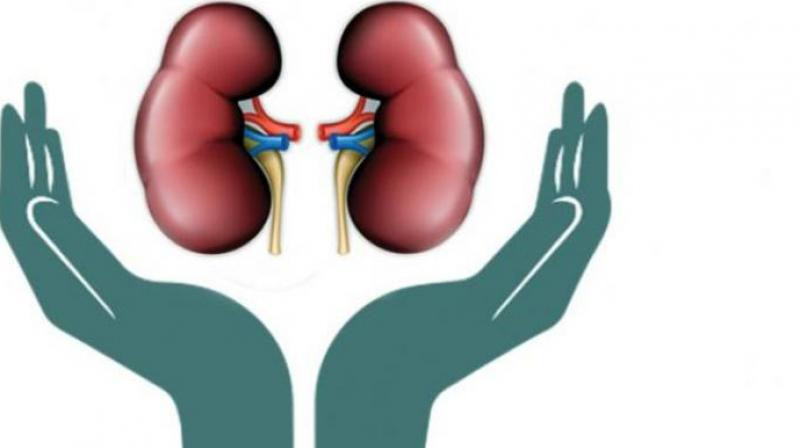The Transplant Center cares for patients awaiting or recovering from kidney and pancreas transplants. End-Stage Renal Disease (ESRD) is the fifth stage of the disease in patients who require a kidney transplant. Patients who require a pancreas transplant have Type 1 Diabetes. Patients who require a pancreas transplant are usually also in need of a kidney transplant. You must contact the doctor about Kondapur‘s Top Kidney Transplant Hospital or the Best Hospital for Kidney Problems in Kondapur.
But before knowing about the Top Transplant Hospital in Kondapur and the Cadaver Kidney Transplant Hospital In Kondapur some other essential things to know about. Kidneys are crucial organs in the human body. They remove pollutants from the body and maintain healthy blood flow to all organs. When one's kidneys fail, the only alternative is to transplant them. Kidney transplantation approaches include transplanting a kidney from a living donor, preferably blood relative to assure a perfect match, and extracting a kidney through a swap operation. A swap transplant is a procedure in which the donor donates a kidney to an unrelated recipient while his relative receives a kidney from the recipient's relative, which is common in many hospitals.
Kidney Transplantation Centre Details
The Kondapur‘s Top Kidney Transplant Hospital or the Best Hospital for Kidney Problems in Kondapur varies from place to place. So before getting the treatment, you must know the Top Transplant Hospital in Kondapur and the Cadaver Kidney Transplant Hospital In Kondapur. A pre-transplant evaluation provides detailed information about your overall health before undergoing a kidney transplant. The examination assists the Renal Transplant Team in identifying any potential issues. The Renal Transplant Team can then take action to avoid any issues after the transplant procedure and to prevent problems before the transplant surgery. A letter will be issued to you and your physician before your pre-transplant evaluation to obtain crucial information about your medical status. Before you are reviewed by the transplant team, your doctor must send the following information:
1. A current history and physical
2. Include your height and weight (you must have a BMI of 35 at the time of the transplant).
3. Include a comment detailing the level of compliance (could be a social worker note)
4. Current lab work, such as a metabolic panel, etc.
All donors are thoroughly vetted to ensure a good match and to avoid any transmissible illnesses or other issues. Kidney transplantation is the process of inserting a healthy kidney into the body so that it may fulfill all of the functions that a failing kidney cannot. The new kidney is surgically implanted on the lower right or left side of your abdomen, where it is connected to surrounding blood arteries. Because the kidney is in this position, it may easily link to blood arteries and the bladder. Your replacement kidney's vein and artery are connected to your vein and artery. The urethra of the new kidney is connected to your bladder and allows urine to exit your body. The damaged kidneys are not removed in the majority of kidney transplant cases. There are three circumstances that may necessitate the removal of your damaged kidneys during kidney transplantation:
1. Infections that reoccur and may spread to the donated kidney
2. Hypertension that is uncontrollable due to your original kidneys
3. Urine backs up into your kidneys (a condition called reflux)
To get the best treatment you must be aware of Kondapur‘s Top Kidney Transplant Hospital or the Best Hospital for Kidney Problems in Kondapur. After knowing the Top Transplant Hospital in Kondapur and the Cadaver Kidney Transplant Hospital In Kondapur. A successful kidney transplant increases your strength, stamina, and energy. You should be able to resume a more regular lifestyle and have more control over your daily life after a kidney transplant. You can eat normally and drink plenty of water. If you were on dialysis prior to the transplant, you will have more flexibility because you will no longer be restricted by your dialysis regimens.
Anemia, a common complication of renal failure, can be treated following transplantation. If you have hypertension (high blood pressure), you may need fewer blood pressure drugs following the transplant. After being discharged from the hospital following a kidney transplant, a patient is followed as an outpatient in the Post Transplant Clinic. These visits are intended to assure the patient's well-being, check the function of the transplanted kidney, and ensure that medications are suitable.
FAQs
1. What are the three different types of kidney transplants?
1. Deceased donor: A person from whom at least one solid organ is recovered for transplantation after brain or heart death.
2. Donor with expanded criteria (ECD): A donor who died after the age of 60.
3. A living donor is someone who donates an organ for transplant.
2. How long can a person live after receiving a kidney transplant?
A living donor kidney lasts 12 to 20 years on average, while a deceased donor kidney lasts 8 to 12 years. Patients who receive a kidney transplant before starting dialysis live 10 to 15 years longer than those who do not.
3. How effective is a kidney transplant?
According to the National Organ Procurement and Transplantation Network, the success rate of a kidney transplant with a living donor kidney was 97% after one year and 86% after five years. The success rate after a deceased-donor kidney transplant was 96% after one year and 79% at five years.






